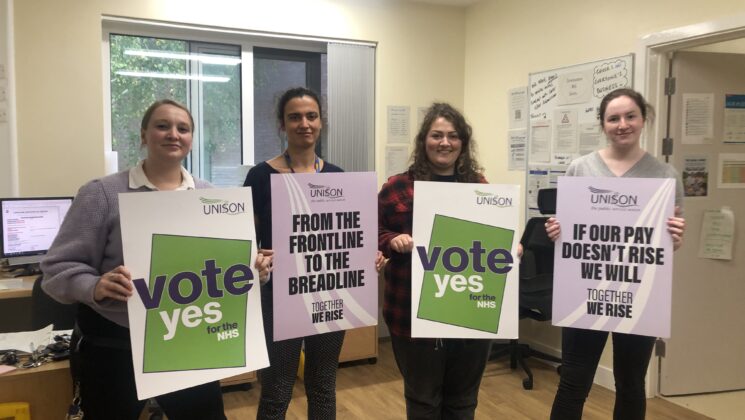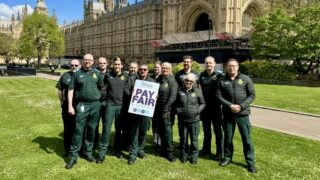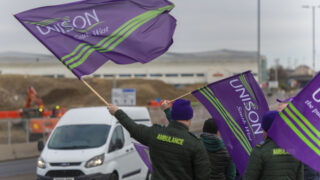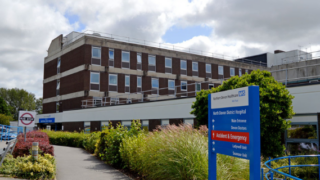Around 350,000 NHS employees, working for more than 250 health trusts and boards across England, Wales and Northern Ireland, are being asked to vote for strike action over pay this winter from today.
The most pressing issue for the new prime minister and health secretary is without doubt finding a solution to the many problems affecting the NHS, says UNISON.
If, as Rishi Sunak says, he wants to strengthen the NHS, ministers have no option but to build upon the rise of £1,400 awarded to health workers in England earlier in the summer, urges the union.
A second wage increase that better protects staff against the ravages of inflation, and helps the NHS hold on to the many leaving for more lucrative, less challenging jobs elsewhere, would make the world of difference, says UNISON.
Commenting on the strike ballot, UNISON general secretary Christina McAnea said: “Striking is the last thing dedicated health workers want to do. But with services in such a dire state, and staff struggling to deliver for patients with fewer colleagues than ever, many feel like the end of the road has been reached.
“The NHS is losing experienced staff at alarming rates. Health workers are leaving for work that pays better and doesn’t take such a toll on them and their families. If this continues, the health service will never conquer the backlog and treat the millions desperately awaiting care.
“It feels like the NHS is in the last chance saloon. But a vote for industrial action might be the jolt that convinces ministers to make the NHS the priority they say it is.
“Strikes across the NHS this winter are not inevitable. The government must start to tackle the growing workforce crisis with an inflation-busting pay rise and get the NHS back on the long road to recovery.”
Hundreds of thousands of ballot papers are being posted out today. The union is urging health workers to return them promptly to overcome the strict laws on turnout put in place by a previous Conservative government to make industrial action more difficult, it adds.







